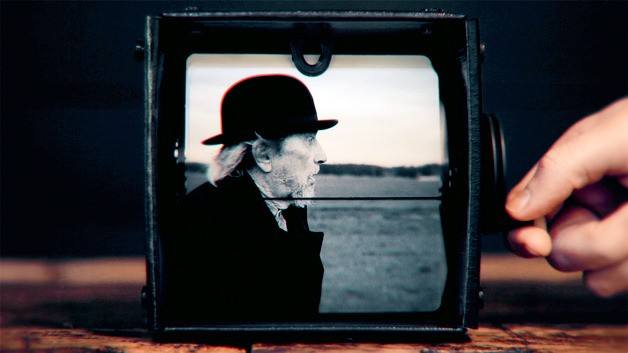Fame, notoriety, and time as themes and ideas drew animator Drew Christie to make a short film about a man who trailblazed film and animation during westward expansion of the United States.
Christie hopes that judges and audiences at the annual Sundance Film Festival in Park City, Utah later this month find it as fascinating and captivating as he did. He said “The Emperor of Time” is the first live action film he made in “a very long time.”
“It was all exactly how I remembered it,” he said of filmmaking, which for this project he financed, produced, directed and wrote.
Running six minutes and 24 seconds, the film tells the true story of Eadweard Muybridge, the man who pioneered motion pictures during the late 1800s. It was accepted into the festival’s short film program, the third time since 2012 that his work was screened at the vaunted showcase.
Fascinated by the people who defined his craft of animation, Christie read a book that included a small biography of Muybridge. What he learned created a portrait of a man, both good and bad.
Muybridge (played by veteran actor and Whidbey resident Richard Evans) had committed murder but was acquitted on the grounds of justifiable homicide because he killed his wife’s lover, denied being the parent of the child she birthed and rarely communicated with his son.
The short film is told from the son’s perspective as he processes the importance of this man who created a new medium but who was also deeply flawed and difficult. It is the kind of character that recent programs such as “Breaking Bad,” “Mad Men” or the Steve Jobs biopics fixate on: talented men with unsavory pasts and traits.
“It’s a modern story in a lot of ways,” Christie said. “It’s this person that gave us this technology that we know and love every day, that we don’t know a lot about or what we don’t know isn’t that favorable.”
“Maybe he wasn’t a god among men,” he added.
The film opens with a description of Chinese emperors being revered in such a way. They were believed to actually own time, and there are plenty of common sayings about people who control — know — time-wielding power. Christie himself wonders about time as a dimension and an idea — that we hurtle forward, exist in a present, ponder a past and wonder about a future. Those themes found their way into the story in subtle ways: “He was the first man who stared at time itself and said, ‘Stop,’ ” and the description of westward U.S. expansion via railroads being “the annihilation of time and space” because it made a vast land quickly traversable.
“I became obsessed with that: time is kind of this fake thing that we all decided on … but then time is also very real,” he said. “The sun comes up and the sun comes down and each day you get a little closer to death.”
“Time is definitely the little monkey on my back,” he added.
Muybridge pioneered motion picture by setting up a string of cameras attached to trip wires that clicked the shutter each time a horse hit one. It created a series of photos that when shown together quickly on a projector looked like movement. As the narrator says, “Before Edison, before all those Europeans, it was my father, the emperor of time.”
The unusual presentation of the film is intentional. Christie wouldn’t disclose much of the actual production, but a screened showing courtesy of Christie revealed that the film is a frame within a frame. It appears to be a series of cards rotating on what Christie said was a mutoscope, an early motion picture device, with a hand in the film’s frame turning the wheel to display the images. In a way, it is the same idea as countless videos on YouTube of someone’s recording of a TV show; like seeing a picture of someone holding the picture of them holding that picture, and on and on.
“I wanted the story to be presented in a way where it draws attention to the fact that it lives within this world of this mutoscope contraption,” he said.
“You’re reminded of the technology that you’re watching the whole way,” he added.
A busy man, Christie often says he needs more time. The owner-operator of animation studio Kalakala.co, he has been a professional animator for several years. He relocated from Seattle to Langley a few years ago, seeking a slower, more focused life.
Just because he fulfilled a creative project he had dreamed of for six years does not mean he is pursuing it full time. Animation is still his passion. He and his small crew of creators are working on a handful of animation projects.
Even if Christie’s own short film doesn’t win over crowds, his chances of some reverence are doubled because his animation work is featured in a feature-length documentary titled “NUTS!”
Christie said he is finalizing scheduling details with The Clyde Theatre to screen the short film some time in March.
For now, Christie will remain a man of time, with plenty of work to keep him busy and short on the thing that captivates him.



